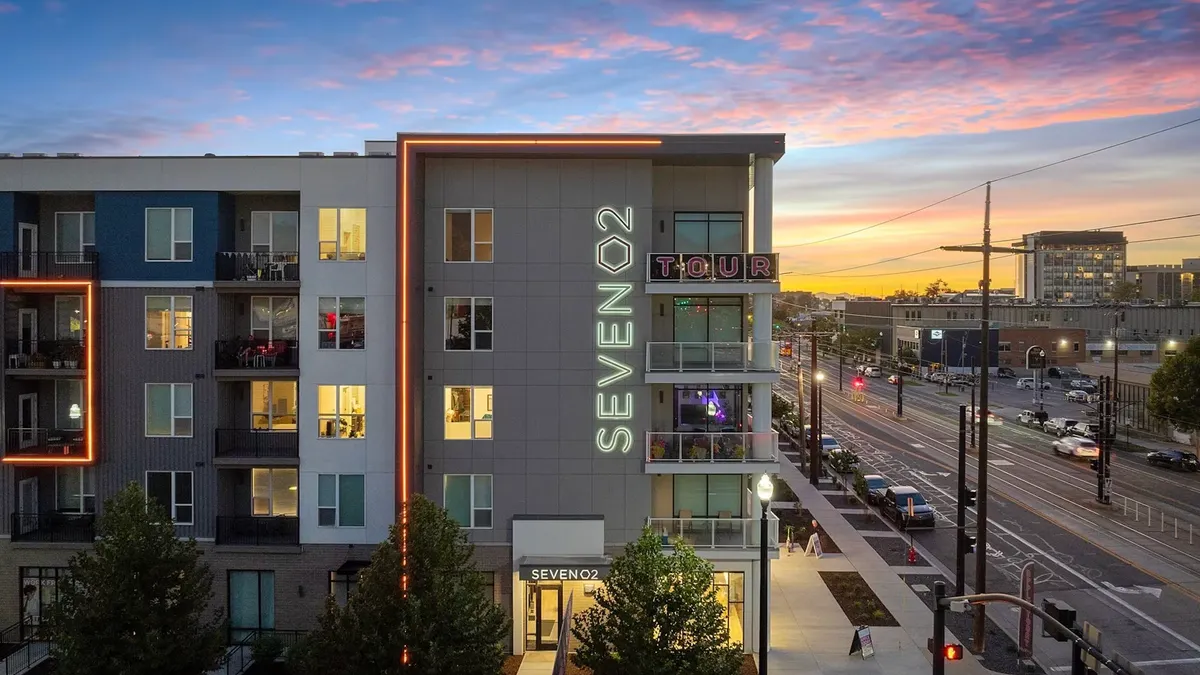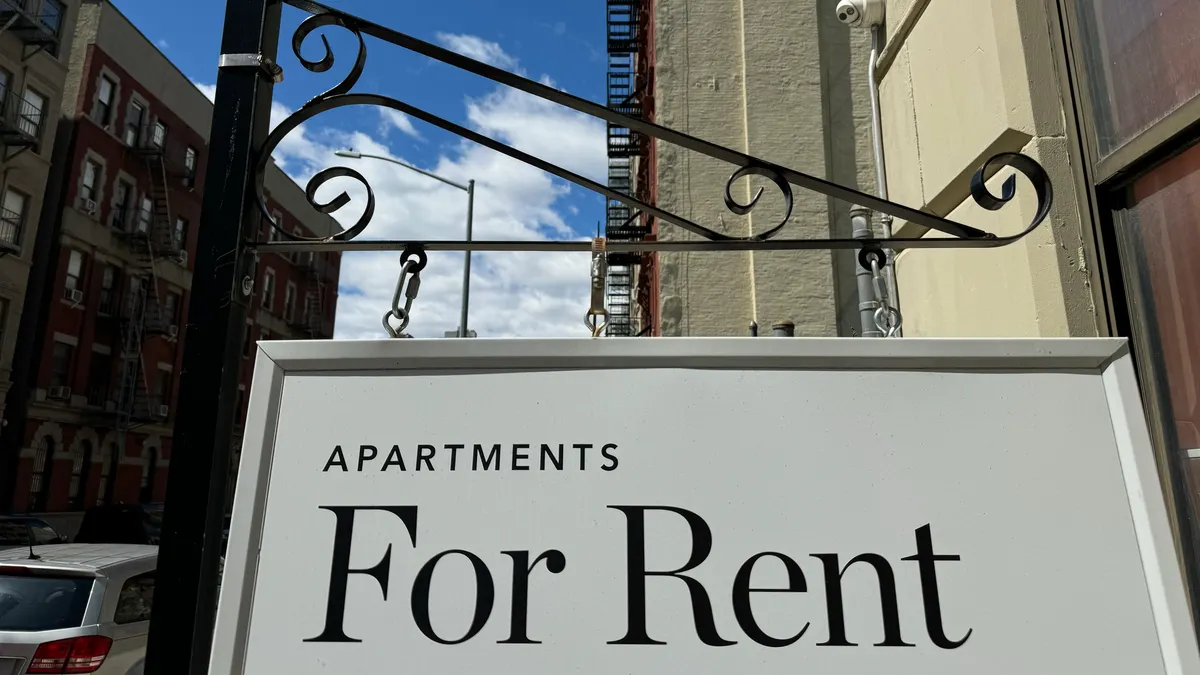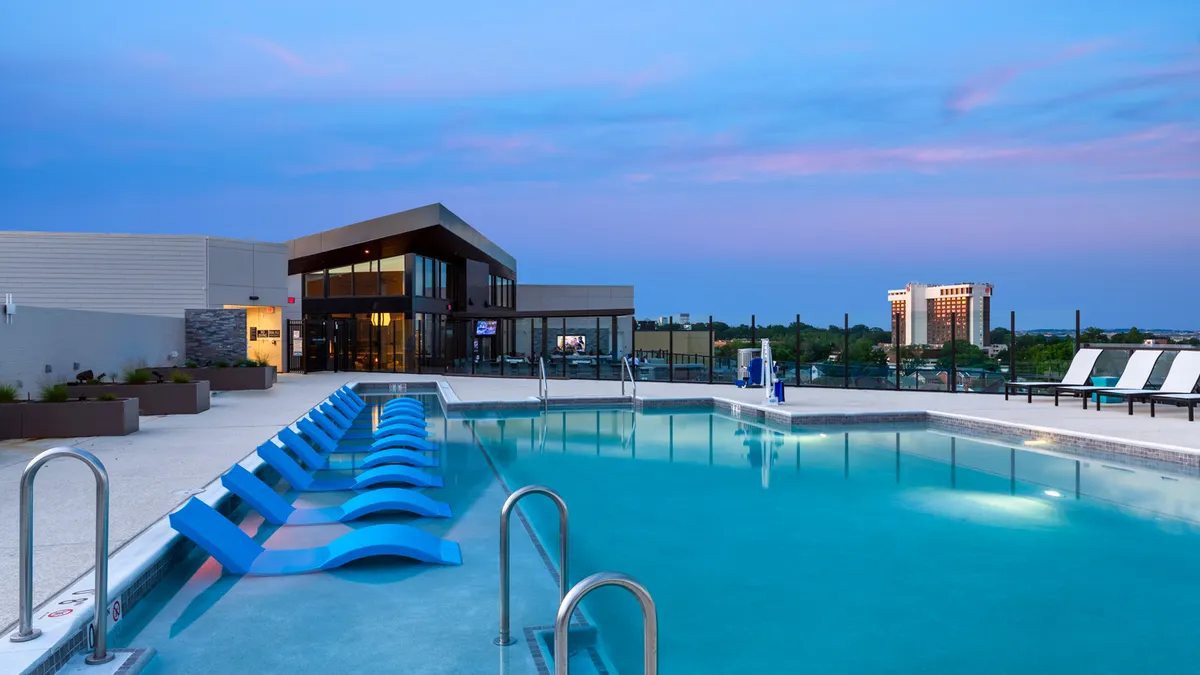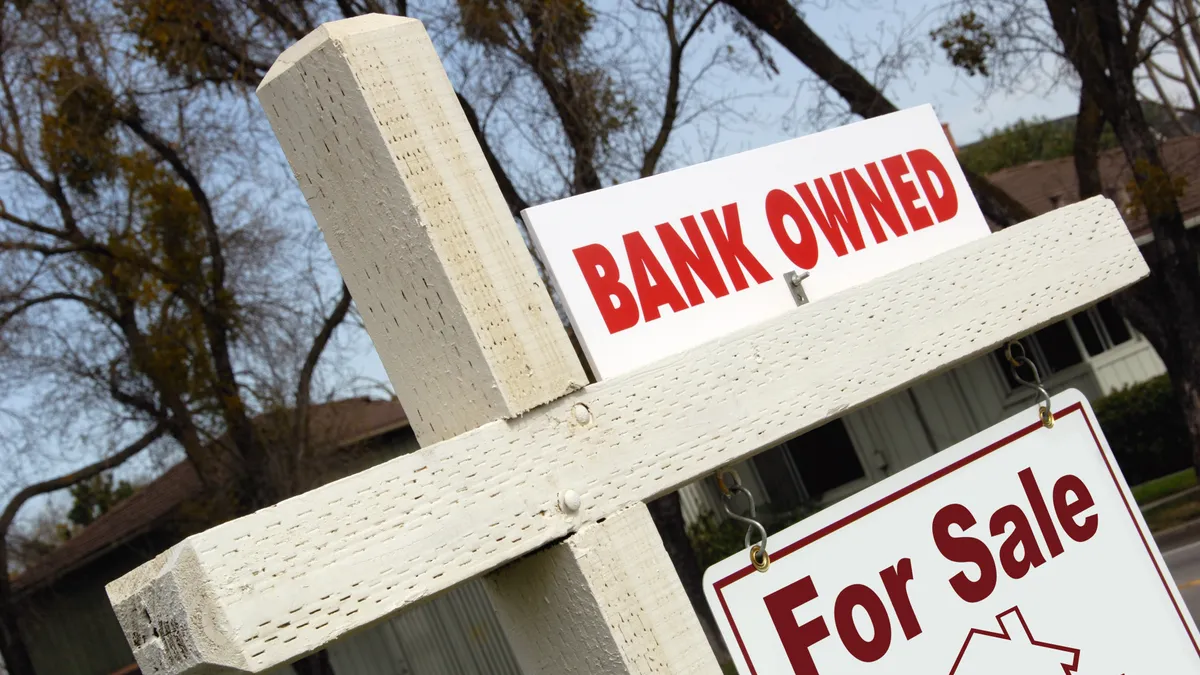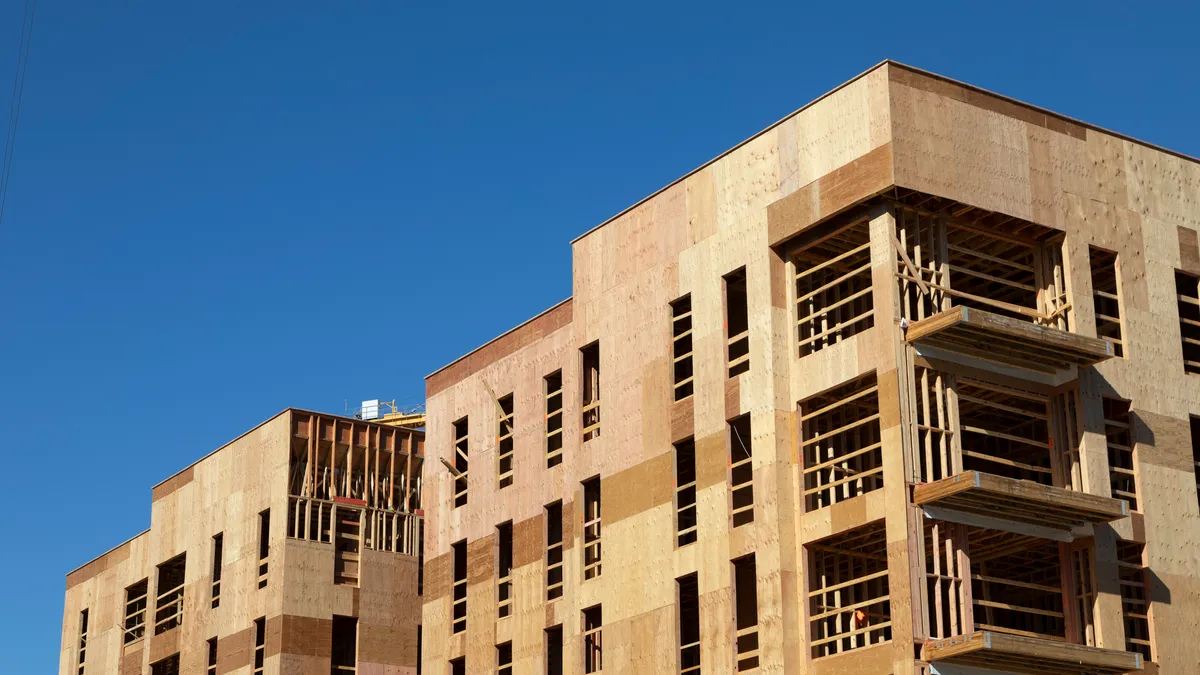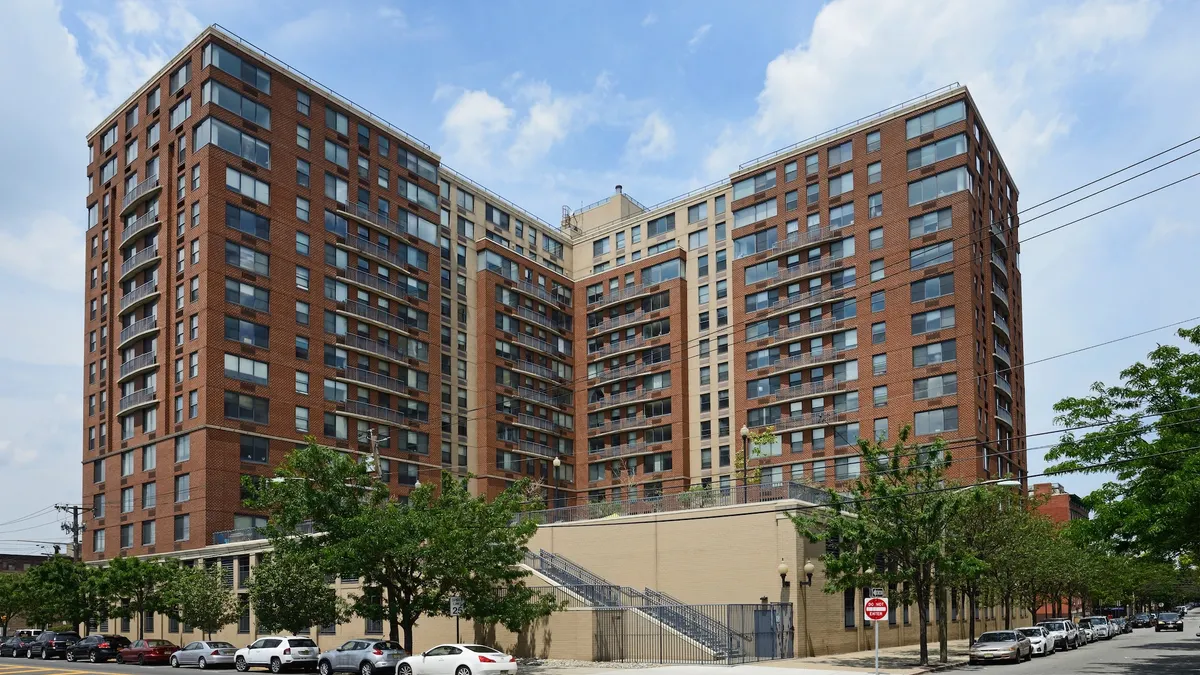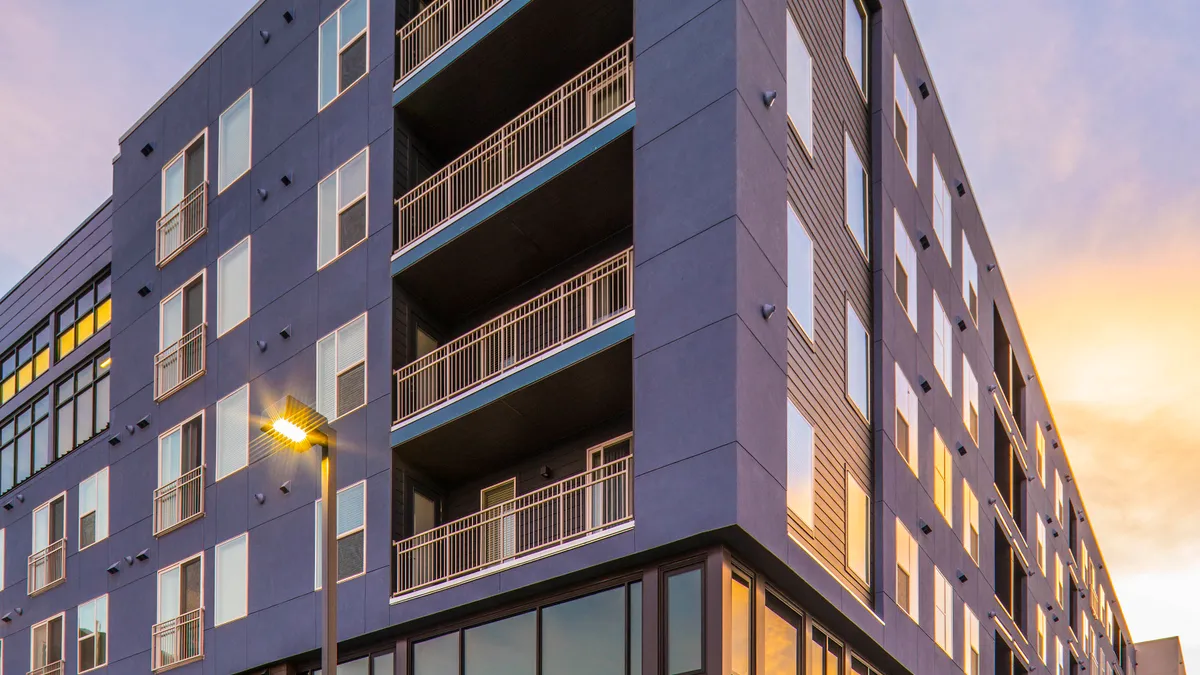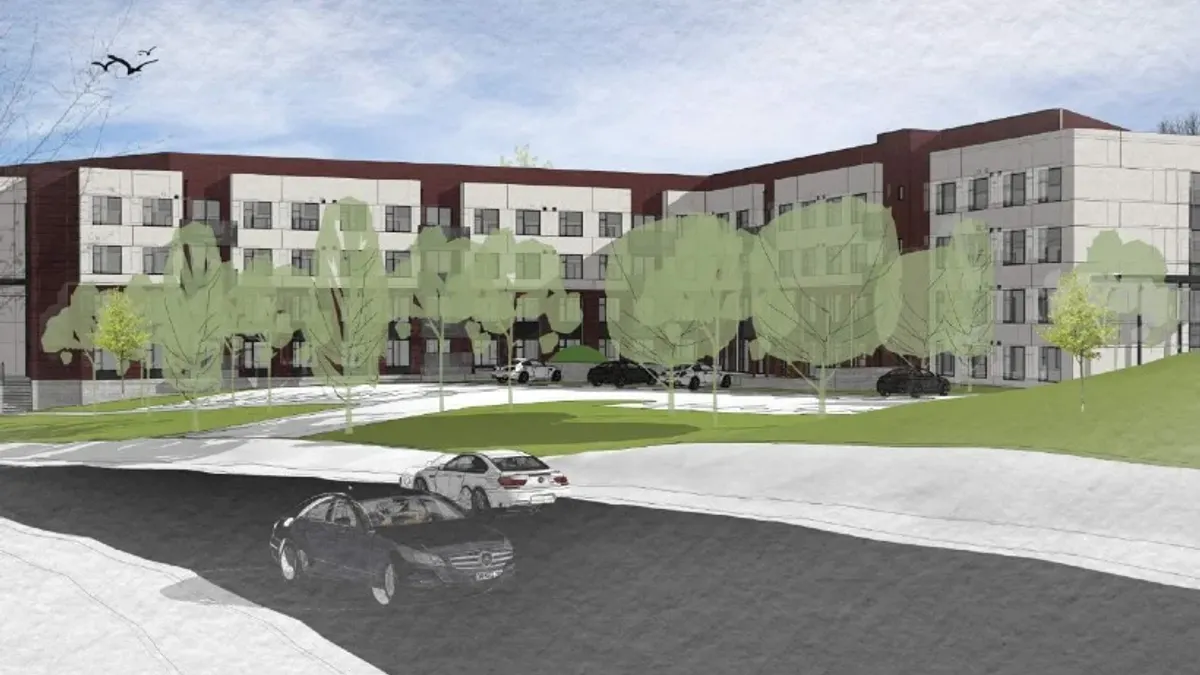For the executives at PEG, navigating construction has been especially difficult over the past couple of years.
The Provo, Utah-based real estate firm doesn’t just develop and operate apartments. It also builds, owns and manages hotels and build-to-rent properties. The firm works with major hotel brands, like Marriott, Hilton and Hyatt.
“In developing those types of products, it's been tough to make deals pencil, even for the last couple of years, just because of the increase in costs and interest rates,” PEG Executive Chairman Cameron Gunter told Multifamily Dive. “Having this uncertainty on tariffs has caused us even bigger issues.”
Right now, PEG has two multifamily projects in development, with one in Tucson, Arizona, slated to open later this year. The firm is trying to mitigate the impact of tariffs by planning ahead.
“We bought a bunch of our cabinets out of China,” Gunter told Multifamily Dive. “So we took our first shipment as we started to see this issue on tariffs. We haven’t installed it, but it’s all stored on property.”
PEG is also working with its contractors to try to share the cost burden on tariffs. “I can create contingencies where they have it as part of their [guaranteed maximum price] and we use that contingency to cover any tariffs based on the general contractor piece,” Gunter said. “If it goes over that, there’s a responsibility. If it comes under that, there’s a shared savings clause.”
Here, Gunter talks with Multifamily Dive about tariffs as well as labor costs, customer service and centralization.
This interview has been edited for brevity and clarity.
MULTIFAMILY DIVE: Are you seeing a moderation in labor costs?
CAMERON GUNTER: We were getting super excited that we were going to start to see costs stabilize and potentially even come down. There has not been a lot built. Now you have a bunch of projects burning off for subcontractors. What we've seen is a lot more subcontractors bidding projects and willing to take a lower rate. Before, they were increasing their margins, and you didn't have as many bidders.
On top of that, we're seeing energy costs coming down. So many things — the cost of fuels and energy — impact construction. So those are all positive.
How have tariffs affected these trends?
Now we see this tariff issue, which then creates additional uncertainty. Contracts are now pricing with a contingency in costs. If we can get some certainty around it, I think it will be easier for us to figure out if we move forward with any development.
But as we see that instability and potential rising construction costs, it creates an opportunity on the acquisition side because we can acquire much lower than replacement costs.
Are the tariffs killing development deals?
I think it does kill deals. With that uncertainty, you can't make it pencil, with what Treasury is, with what [the Secured Overnight Financing Rate] is and what your interest cost is. If we saw some stabilization or even a slight decline in construction costs from what we've seen over the last few years, that would make sense for us to move forward because we could start penciling a return that makes sense.
But until we see that or we wait a couple of years to see rents start to climb more than what they have, then it's tough to make it work. Now, are there deals that make sense? Yeah, but they're few and far between.
You've got to have some kind of incentive, whether it's city incentives or some density bonus. But they're going to require some affordability.
What do you find that your apartment residents and hotel guests want from their stays at your properties?
As we look at what’s happening with the people that are staying in our hotels and the people that are staying in our apartments, it is Gen Z. It's really about the experience and what we can provide in our properties from a service standpoint that gives them experience.
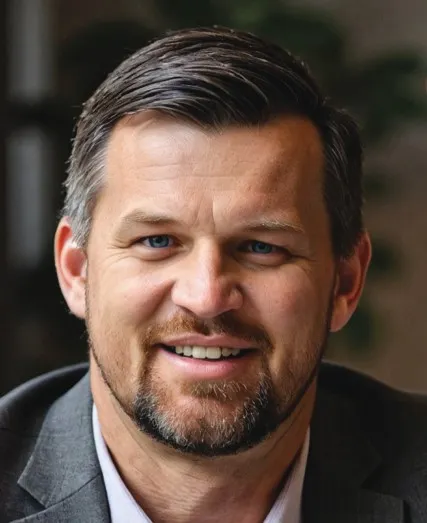
With the asset itself, we're providing self spas and providing different amenity spaces in our properties. We have to figure out how AI can help us get our people away from doing the minutia as well as save costs.
Where we’re going to win and get the returns we need from an operations standpoint is to reduce our costs and provide that better service.
How is centralization playing into this?
A lot of it is centralization — having our data and business intelligence folks be able to figure out how to provide real-time data to our people without having to enter our stuff in. So anytime our apartment manager does not have to enter a bunch of stuff, whether it be leases, whether it be looking at turnover or looking at other markets, it's a win.
If we can provide that stuff real time to them, they can make the decisions quicker and they don't have to be in front of a computer.
And it's the same in our hotels. They have more staff at a hotel because you're turning over quicker. But we should be treating our guests and our tenants the same. We should be providing that level of service that makes them want to stay in the property and not leave.
Click here to sign up to receive multifamily and apartment news like this article in your inbox every weekday.


